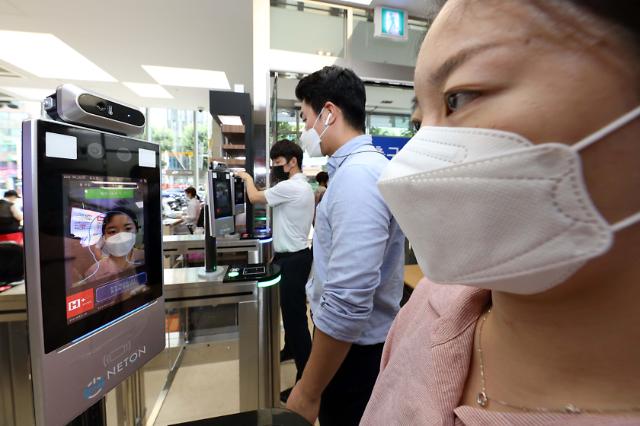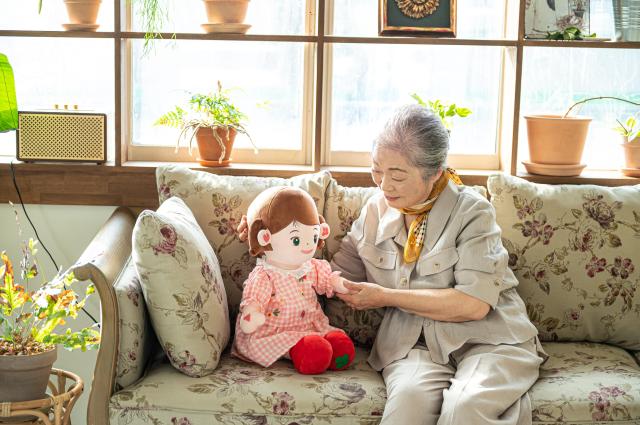
[Yonhap Photo]
The system developed by LG Uplus (LGU+) was installed at H+ Yangji Hospital in Seoul at the end of July. "We have preemptively introduced a smart system to create a safe hospital environment from infectious diseases including COVID-19 and maintain the quality of medical care," H+ Yangji Hospital head Kim Sang-il said.
Through a video analysis solution, the system can reduce the time required to enter and exit hospitals. LGU+ said its AI-based deep learning algorithm has a face identification rate of 99 percent or higher.
LGU+ said its system can be applied to schools, churches, and government offices. "We will make efforts to contribute to preventing the spread of COVID-19," said LGU+'s convergence business head Seo Jae-yong. The hospital would introduce a 5G quarantine robot that can travel around the floor and provide on-site guidance comments and real-time alarm to the control room through multiple face analysis.
LG Electronics, a sister company of LGU+, has developed various service robots such as CLOi, an AI-based service robot which provides navigational services and controls connected appliances. The company has stressed that service robots would play a bigger role in minimizing human contact when non-face-to-face services are needed due to a new coronavirus pandemic.
LG has teamed up with Woowa Brothers, the operator of South Korea's top food delivery service app Baedal Minjok, to develop a total smart solution for delivery and other robots. In July, LG's self-driving service robot made its commercial debut at Seoul National University Hospital to deliver various items such as blood samples, prescription drugs, diagnostic reagents and consumables.
Copyright ⓒ Aju Press All rights reserved.



![[CES 2025] Samsung Display to showcase 18.1-inch foldable display at CES 2025](https://image.ajunews.com/content/image/2025/01/06/20250106095713867916.jpg)
View more comments